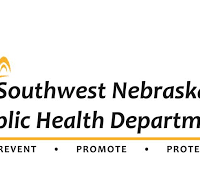
During the month of September, Southwest Nebraska Public Health Department (SWNPHD) and other partners across the state are teaming up for Suicide Prevention Awareness. The month of September focuses on encouraging individuals to talk about suicide and promoting available resources to help individuals that are in crisis.
“Please remember that suicide is a permanent solution for a temporary problem, and even though you may feel like everything is a lost cause, you are not alone. You and your life matter.” said Tanya Daniel, SWNPHD’s Suicide Prevention Program Manager. “Suicide Prevention Awareness Month is a time to raise awareness and talk about this often stigmatized and taboo subject. The truth is the key to suicide prevention is having honest conversations about mental health and suicide. It’s okay to talk about suicide; one conversation could save a life.”
Available crisis support lines include:
- National Suicide Hotline 1-800-273-TALK (8255)
- Text HELLO to Crisis text line 741741 if you are uncomfortable talking on the phone
- TTY users dial 711 then 800-273-8255
- Online chat https://suicidepreventionlifeline.org/chat/
- Ayuda En Espanol 1-888-628-9454
- Veterans 1-800-273-8255 press 1 or text 838255
According to the National Institute for Mental Health (NIMH), suicide rates have increased by 35% since 1999. More than 48,000 lives were lost to suicide in 2018 alone. Comments or thoughts about suicide — also known as suicidal ideation — can begin small like, “I wish I wasn’t here” or “Nothing matters.” But over time, they can become more explicit and dangerous.
Here are a few possible warning signs of suicide:
- Talking about feeling hopeless or having no reason to live
- Talking about feeling trapped or in unbearable pain
- Increased alcohol and drug use
- Aggressive behavior
- Withdrawal from friends, family, and community
- Dramatic mood swings
- Talking about wanting to die or to kill oneself
- Looking for a way to kill oneself, such as searching online or buying a gun
- Impulsive or reckless behavior
- Collecting and saving pills or buying a weapon
- Giving away possessions
- Tying up loose ends, like organizing personal papers or paying off debts
- Saying goodbye to friends and family
There are a few ways to approach a suicide-crisis:
- Talk openly and honestly. Don’t be afraid to ask questions like: “Do you have a plan for how you would kill yourself?”
- When possible, remove means such as rope, guns, knives, or stockpiled pills
- Calmly ask simple and direct questions, like “Can I help you call a counselor or crisis helpline?”
- If there are multiple people around, have one person speak at a time
- Express support and concern
- Don’t argue, threaten, or raise your voice
- Don’t debate whether suicide is right or wrong
- Be patient
Daniel encourages everyone to make an effort to contact friends or family members who may be in crisis, stating, “If in doubt, just reach out. It is so important; and it might just save a life!”














